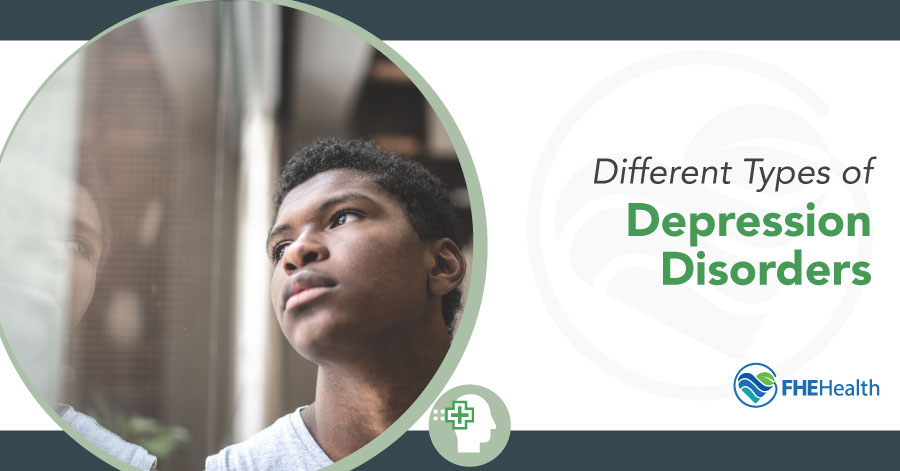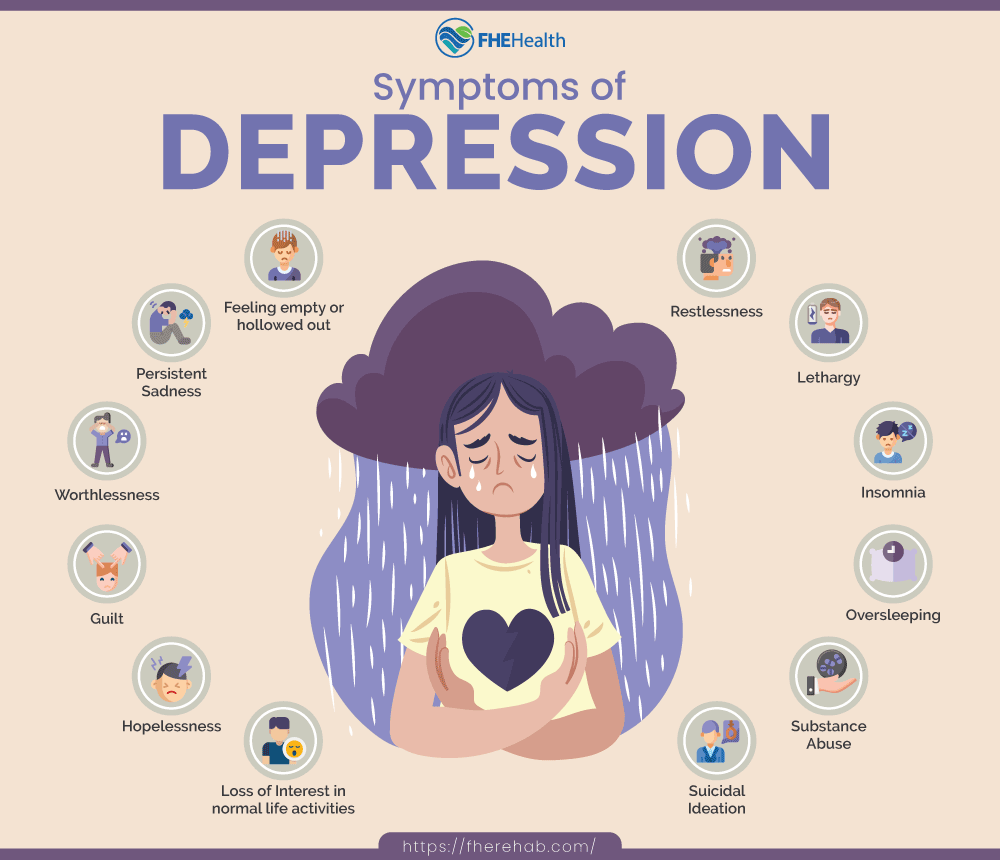
In past years, before real research was done on the different depression types, people sometimes believed depression was simply a feeling of unhappiness or self-pity. It was common to think depression was a choice someone could make to be sad, depressed or negative. Many believed that if you only “smile though your heart is aching,” you’ll be able to live a content life. It turns out nothing could be further from the truth.
There’s absolutely nothing simple about this mental illness. It’s a scientific fact that depression is caused by “a combination of genetic, biological, environmental and psychological factors,” according to the National Institute of Mental Health. Depression is by no means the choice of the person struggling with it, but understanding how depression is classified and what the different depression types are can help shed some light on this condition.
Are There Different Types of Depression and How Are They Classified?
Yes, there are many clinical diagnoses for depression. While they all have some symptoms in common, there are also some key differences that differentiate them from each other. Here are a few of the common symptoms of depression.
- Feeling empty or hollowed out
- Persistent sadness
- Worthlessness
- Guilt
- Hopelessness
- Loss of interest in normal life activities
- Restlessness
- Lethargy
- Insomnia
- Oversleeping
- Substance abuse
- Suicidal ideation
This list is not comprehensive, and not every person who suffers from major depressive disorder or clinical depression experiences every one of them. The symptoms may ebb and flow over the course of a depressive episode, presenting as moderate to severe in nature. Depending on the type of depression someone suffers from, the depressive episode may last longer for some people than for others.

Depression types are often differentiated on the basis of:
- Length of time
- Presentation of symptoms
- Severity of symptoms
- Impact on the person’s quality of life
- Surrounding circumstances, such as in the case of postpartum depression
- Exacerbating factors
When your doctor is evaluating you for a potential diagnosis of depression, they’ll ask you how you’ve been feeling and have you describe your symptoms in detail. It’s important to be as specific and honest as you can. It’s normal for those experiencing depression to try to minimize symptoms or feel awkward or guilty for feeling the way they do. But your doctor needs to know exactly what’s going on to ensure you get the correct diagnosis and can move forward with treatment.
What Are the Different Depression Types?
There are several different depression types, and more are always being considered for inclusion in the next version of the DSM. Below, we’ve provided a list and description of some of the most common types of depression.
Major Depressive Disorder
Also sometimes referred to as major depression or clinical depression, major depressive disorder is one of the most common types of depression. It’s characterized by severe and ongoing depressive symptoms that have a negative effect on the person’s relationships, ability to work and overall quality of life.
Persistent Depressive Disorder
Persistent depressive disorder is also known as dysthymia. This form of depression is the kind of diagnosis someone who suffers from a major depressive episode for a time period of over two years would receive. The depressive symptoms may vary in severity during the lengthy depressive episodes; however, the depression will be present even when symptoms are less aggressive.
Bipolar Disorder
Bipolar disorder, while a completely different disease from depression, is most certainly relevant here because people with bipolar disorder — in particular, bipolar disorder II — spend plenty of time in a depressive swing. Extreme lows of major depressive symptoms may afflict a person with bipolar II disorder most of the time as their mood swings are lower on the spectrum. A person with bipolar I disorder is higher on the manic side of the spectrum.
Bipolar disorder can also sometimes be a co-occurring condition with a depressive disorder. Your doctor will take all the diagnoses into consideration when developing a care plan.
Seasonal Affective Disorder
Seasonal affective disorder, commonly referred to as SAD, usually occurs during the winter months. People complain about a general feeling of malaise when there’s less natural sun. When someone suffers from SAD, they usually seclude themselves inside but then start to reengage during the spring and summer months.
SAD is especially common in places that get fewer sunny days and experience more cold or wet weather that keeps people inside. Some people treat SAD by using lights that are meant to mimic the sun.
Psychotic Depression
Psychotic depression is a comorbidity. This is when two different disorders come together, such as psychosis, and the symptoms from that psychosis come through a depression lens. For example, if someone has delusions or hears and sees things that aren’t real, those hallucinations psychosis may show its form in delusions that produce feelings of sadness in the person. There may also be feelings of inadequacy or shame.
Postpartum Depression
Postpartum depression is a type of depressive disorder that happens after a woman gives birth. While the “baby blues” is a minor sadness that often occurs around eight days after giving birth, postpartum depression is much more serious. Mothers with postpartum depression may have difficulty bonding with their children and may have thoughts of harming the children or themselves.
Postpartum depression can be especially difficult to deal with, as many mothers feel even more guilt and shame for not enjoying this time or feeling they aren’t good mothers because they don’t feel bonded to their children. Postpartum depression can also manifest as intense anxiety and, in very severe cases, can turn into postpartum psychosis.
Finding the Right Support for Depression at FHE Health
It’s easy to see from this list of depression types that there’s no one-size-fits-all diagnosis or treatment when it comes to depressive disorders. If you or someone you love is struggling, FHE Health can help. Contact us today to speak to a representative who can tell you more about what we offer.






